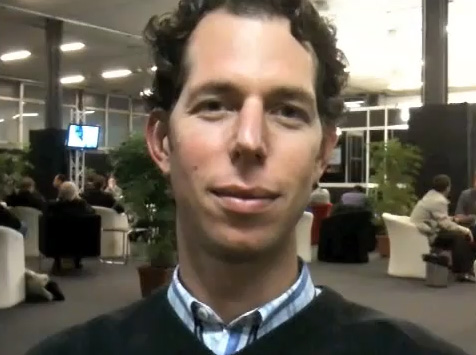 Mobile Payments were a hot topic at this year’s Mobile World Congress. I mean HOT (well, if your into that kind of thing of course). Based on what I saw at the event though, there are a lot of people into that kind of thing. In fact, they had an entire day dedicated to the concept. Panels and speakers talking shop, standing room only crowds, hundreds and hundreds of suits – any payments nerd or finance freak’s paradise. Let’s be honest that sometimes conference panels can be dry and boring, especially those describing financial networks, but I have to say these were quite interesting. There are a lot of good ideas floating around out there and the competition is going to get intense.
Mobile Payments were a hot topic at this year’s Mobile World Congress. I mean HOT (well, if your into that kind of thing of course). Based on what I saw at the event though, there are a lot of people into that kind of thing. In fact, they had an entire day dedicated to the concept. Panels and speakers talking shop, standing room only crowds, hundreds and hundreds of suits – any payments nerd or finance freak’s paradise. Let’s be honest that sometimes conference panels can be dry and boring, especially those describing financial networks, but I have to say these were quite interesting. There are a lot of good ideas floating around out there and the competition is going to get intense.
 One panel included Ron Hirson from Boku – the mobile payments company recently rumored to be an acquisition target of Apple. Ron’s presentation was quite good and he easily demonstrated his expertise on the subject with a short and clear presentation. As it turns out, I had the chance to interview him a day earlier and get the low down on their concept and their differentiators. They have a good idea. I didn’t fully grasp one of the major benefits until after our interview had concluded, but its important to note. Boku’s system relies on carrier billing. The gist is that your mobile phone number is your unique ID. When you want to purchase something in a Boku partnered website or app, you just put in your mobile number and they connect all the dots on the backend and the purchase is reflected in your phone bill. I realized afterward that the beauty in this method is its “accountless” nature, meaning that you never have to set up an account and enter your billing info and all that. You already did that when you purchased your mobile phone and they can vicariously use that info to facilitate purchases. That is a great idea.
One panel included Ron Hirson from Boku – the mobile payments company recently rumored to be an acquisition target of Apple. Ron’s presentation was quite good and he easily demonstrated his expertise on the subject with a short and clear presentation. As it turns out, I had the chance to interview him a day earlier and get the low down on their concept and their differentiators. They have a good idea. I didn’t fully grasp one of the major benefits until after our interview had concluded, but its important to note. Boku’s system relies on carrier billing. The gist is that your mobile phone number is your unique ID. When you want to purchase something in a Boku partnered website or app, you just put in your mobile number and they connect all the dots on the backend and the purchase is reflected in your phone bill. I realized afterward that the beauty in this method is its “accountless” nature, meaning that you never have to set up an account and enter your billing info and all that. You already did that when you purchased your mobile phone and they can vicariously use that info to facilitate purchases. That is a great idea.
They are only enabled for virtual goods right now, but you can see where this could be headed with real goods. They’ve been doing this in Korea and Japan for a while. It could work other places too.
However, being in bed with the carriers could be risky. Their historical cut has been prohibitively high. It sounds like their required percentage is dropping though, possibly signaling they may realize they have to nurture this space if they want to see it grow. Another big question though deals with whether or not carriers want to underwrite big purchases on post-paid accounts. That could be a very complicated undertaking and I see as a potential barrier. But, if they can all get the numbers right, this could be big time. We’ll see.
Ghetto-style, shakey-cam video below.